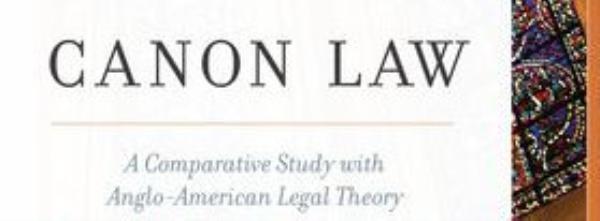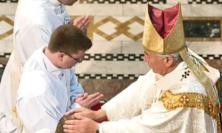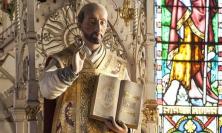John Coughlin is a Franciscan priest and Professor of Law at the University of Notre Dame. In this book he seeks to re-establish canon law as a proper system of law as this is understood in secular Anglo-American legal thought. I say re-establish because nowadays canon law is regarded as a private and trivial matter, not only by States but by members of the faithful, including church authorities, who should know better. That a concern for natural rights, due process, fairness, the right of defence, and other legal maxims in canon law has gone by the board in ecclesial circles is a retrograde development where the promotion of justice has been reduced to an antinomianist idea, and law and a substantive legal spirit in the Church has been replaced or abrogated by distortions since Vatican II.
The Second Vatican Council was weighed heavily towards the pastoral mission of the Church and this resulted in a turn to what I would call ‘canonical pastoralism’ in respect of canon law. The popular take is to say that canon law has become too pastoral, but, as Blessed John Paul II clearly stated, the pastoral includes law and so the lack of its use requires another phrase. Thus, canonical pastoralism occurs when theology marginalises or abrogates the language of law.
This timely tome employs the tools of history, philosophy, theology, comparative law and conceptual analysis to redress this deficiency. The author presents an overview of the formation of canon law as law and to illustrate his points he looks at three examples of recent church life: the sexual abuse crisis in the United States, church ownership of property, and the refusal of Holy Communion to US Catholic public officials. This third example is of general interest not only because the very different approaches taken by individual American bishops questions the universality of canon law, but because of the emergence of this issue in different nations.
Using these examples, the author presents the way in which the Code of Canon Law has been used and abused in the Church and compares that with the demands of jurisprudence in secular positive law. He summarises the thinking of important secular theorists such as Hart, Fuller, Raz, Dworkin and Habermas as foils to canon law theory. Chapters on specific issues such as Legislative, Executive and Judicial Power, Universal and Particular Law, International Law, the Canonisation of Civil Law, and so on, are considered in the light of Dispensation, Exception and Privilege, which he sees are integral features enabling canonical equity; they also fulfill the secular demand for the law to be flexible and adaptable in given circumstances, and, above all, to be effective. Having considered Austin’s argument that the law’s effectiveness is guaranteed by coercion backed by sanctions, and Hart’s and Dworkin’s ripostes to this, the author argues for what he calls the personal reason or intellectus of canon law which brings together natural, theological and historical truths. However, it is not entirely clear how this differs from having an informed conscience.
Coughlin argues that canon law meets the criterion for a system of law and the rule of law, at least in the terms set by Anglo-American legal theory. Canon law’s authority is not primarily derived from coercion by means of sanctions, since it contains only a few penal sanctions, but from the intention of the legislator. Since it has the backdrop of a theological understanding of sacred power, it is this which enhances the duty of obedience owed to it.
The rule of law is central to any legal system and so it is essential that the Church adhere to it. In addition, aspects of history, philosophy, theology and, I would add, legal culture, must be borne in mind when seeking to understand and interpret canon law. Coughlin argues cogently for the necessity of the rule of law being adhered to in the Church (it was not in the three examples he considers) because of the need for a legal system to exist precisely for the good of persons, the Church and the common good, all of which are compromised by failures in this regard. Coughlin presents his case with some force and ably situates the case for canon law being a system of law. He considers secular legal positivism and is keen to bring that to bear on canonical thinking.
Since, as Coughlin argues, modern Western secular law emerged from canon law, perhaps it is time for what has been forgotten in secular legal positivism to be recalled from its Catholic legal sources. This is especially true in the case of basic human rights, a feature which was not lost on Martin Luther King who appealed to St Thomas Aquinas’s account of natural law against unjust racial laws from his prison cell.
A substantive and effective system of law is important for the Church and society. It is clear that no legal system lives up to its expectations and that all have defects that are difficult to correct, and Coughlin notes that secular law is often subject to political pressures. He observes that antinomianism and legalism and, I would add, canonical pastoralism, must be balanced by the rule of law as understood in Anglo-American legal theory. This book is highly recommended, and will hopefully ensure that canon law does not fall into further disrepute.
James Campbell SJ is a member of the parish team at the Church of the Sacred Heart in Wimbledon.
![]() Find this book on the Oxford University Press web site
Find this book on the Oxford University Press web site
![]() Shop for this book on Amazon, giving a 5% cut to the Jesuit Refugee Service, UK
Shop for this book on Amazon, giving a 5% cut to the Jesuit Refugee Service, UK






